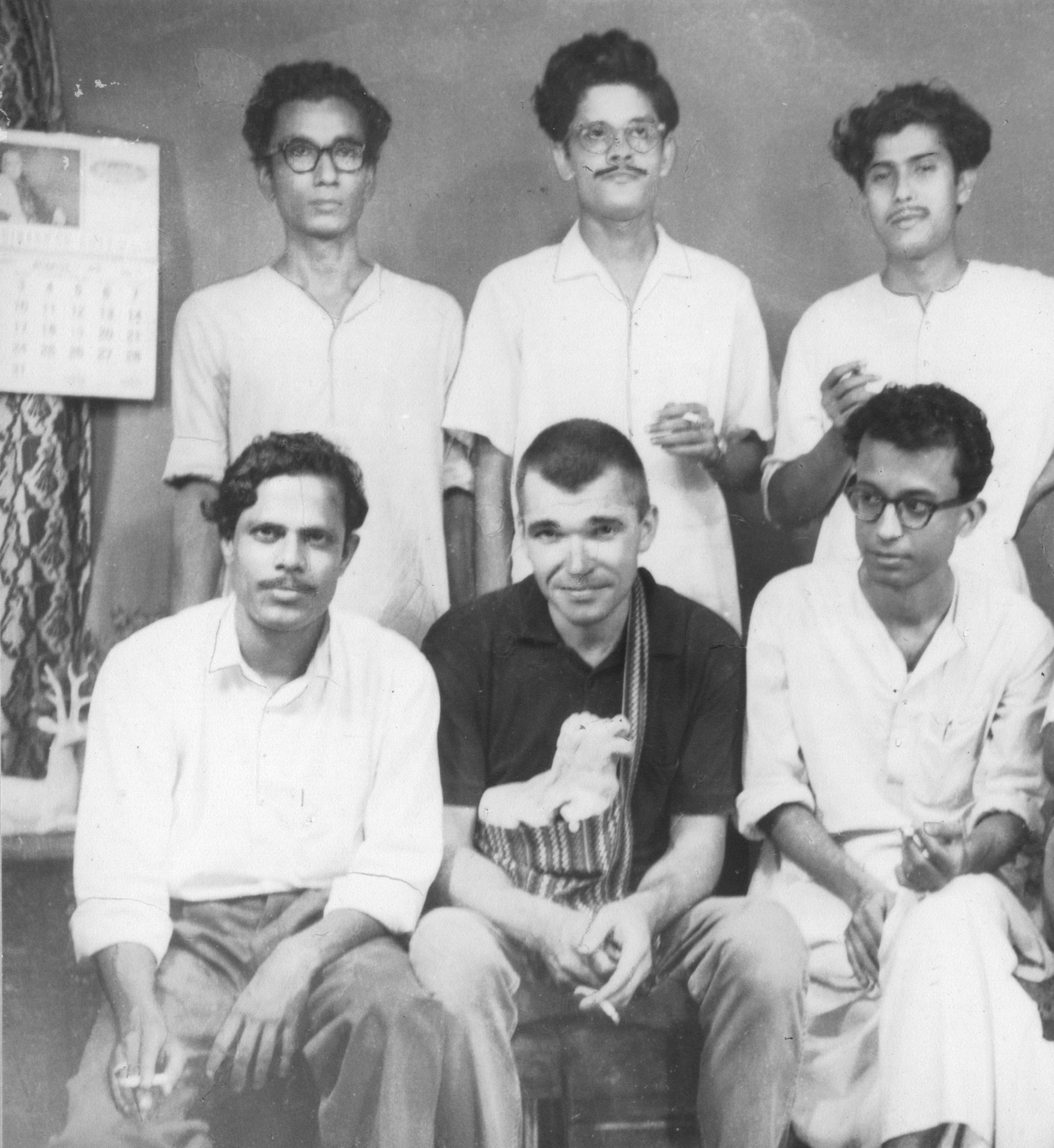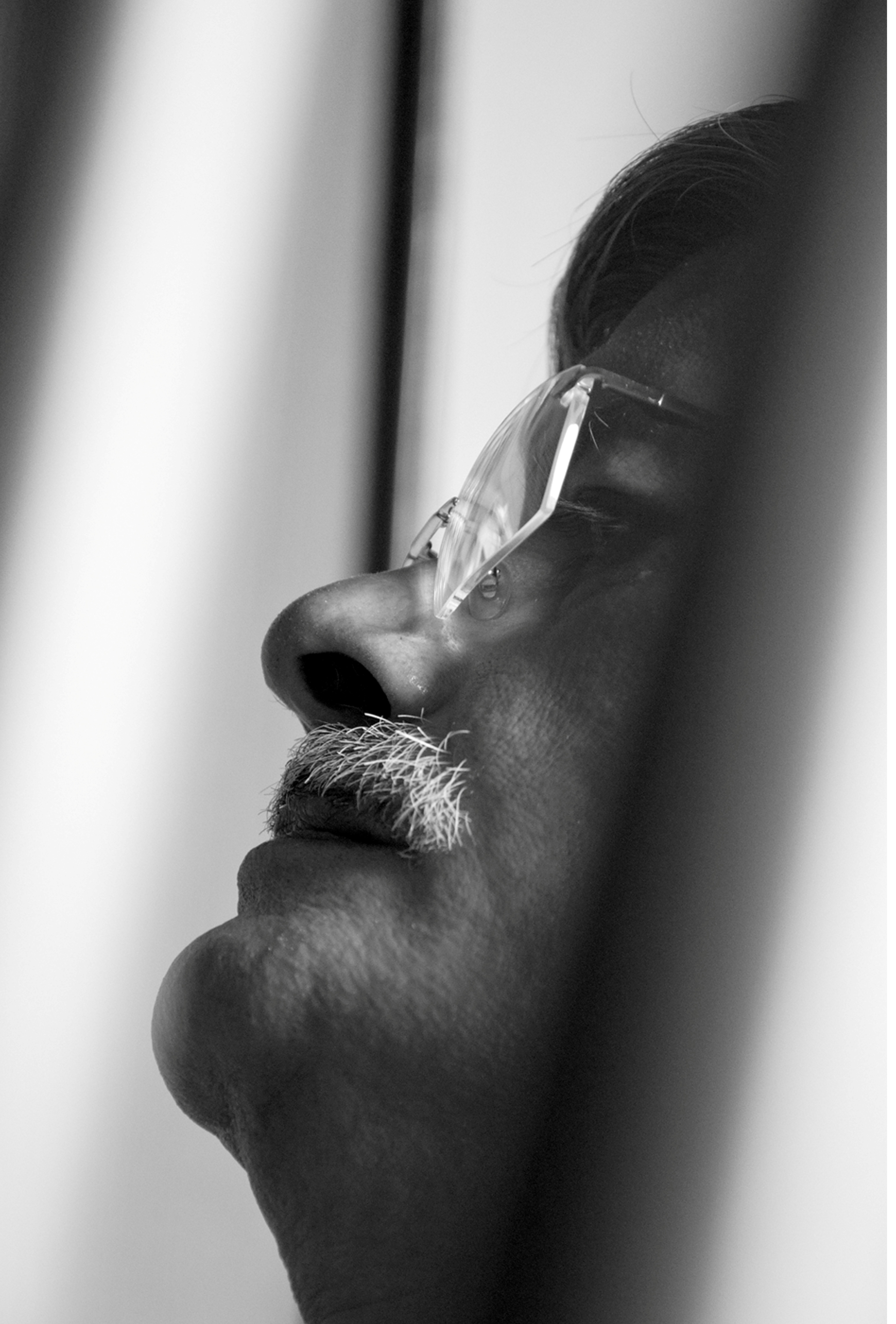|
Hungryalism
The Hungry Generation ( bn, হাংরি জেনারেশান) was a literary movement in the Bengali language launched by what is known today as the Hungryalist quartet, ''i.e.'' Shakti Chattopadhyay, Malay Roy Choudhury, Samir Roychoudhury and Debi Roy (''alias'' Haradhon Dhara), during the 1960s in Kolkata, India. Due to their involvement in this avant garde cultural movement, the leaders lost their jobs and were jailed by the incumbent government. They challenged contemporary ideas about literature and contributed significantly to the evolution of the language and idiom used by contemporaneous artists to express their feelings in literature and painting.Dr Uttam Das, Reader, Calcutta University, in his dissertation 'Hungry Shruti and Shastravirodhi Andolan' The approach of the Hungryalists was to confront and disturb the prospective readers' preconceived colonial canons. According to Pradip Choudhuri, a leading philosopher and poet of the generation, whose works ... [...More Info...] [...Related Items...] OR: [Wikipedia] [Google] [Baidu] |
Samir Roychoudhury
Samir Roychowdhury (Bengali: সমীর রায়চৌধুরী) (1 November 1933 – 22 June 2016), one of the founding fathers of the Hungry Generation (also known as Hungryalism or Hungrealism (1961–1965)), was born at Panihati, West Bengal, in a family of artists, sculptors, photographers, and musicians. His grandfather Lakshminarayan, doyen of the Sabarna Roy Choudhury clan of Uttarpara, had learned drawing and bromide-paper photography from John Lockwood Kipling, father of Rudyard Kipling, who was Curator at the Lahore Museum (now in Pakistan), and thereafter established the first mobile photography-cum-painting company in India in the mid-1880s. The company was later taken over by Samir's father Ranjit (1909–1991). Samir's mother Amita (1916–1982) was from a progressive family of 19th-century Bengal renaissance. Seeds of Hungryalism Samir's grandfather, Sri Lakshminarayan Roy Chowdhury established a permanent photography-cum-painting shop at Patna, Biha ... [...More Info...] [...Related Items...] OR: [Wikipedia] [Google] [Baidu] |
Malay Roy Choudhury
Malay Roy Choudhury (born 29 October 1939) is an Indian Bengali poet, playwright, short story writer, essayist and novelist who founded the Hungryalist movement in the 1960s. Early life and education Malay Roy Choudhury was born in Patna, Bihar, India, into the Sabarna Roy Choudhury clan, which owned the villages that became Kolkata. He grew up in Patna's Imlitala ghetto, which was mainly inhabited by Dalit Hindus and Shia Muslims. His was the only Bengali family. His father, Ranjit (1909–1991) was a photographer in Patna; his mother, Amita (1916–1982), was from a progressive family of the 19th-century Bengali Renaissance. His grandfather, Laksmikanta Roy Choudhury, was a photographer in Kolkata who had been trained by Rudyard Kipling's father, the curator of the Lahore Museum. At the age of three, Roy Choudhury was admitted to a local Catholic school, and later, he was sent to the Rammohan Roy Seminary Oriental Seminary. The school was administered by the Brahmo Sama ... [...More Info...] [...Related Items...] OR: [Wikipedia] [Google] [Baidu] |
Anil Karanjai
Anil Karanjai (27 June 1940 – 18 March 2001) was an accomplished Indian artist. Born in East Bengal, he was educated in Benaras, where his family settled subsequent to the Partition of the Indian subcontinent in 1947. As a small child he had spent long hours playing with clay to make toys and arrows. He also began very early to draw animals and plants, or whatever inspired him. In 1956 he dropped out of school to become a full-time student at Bharatiya Kala Kendra, headed by Karnaman Singh, a master of the Bengal school and a Nepali by origin. This teacher encouraged Anil to experiment widely and to study the art of every culture. Anil remained here until 1960, exhibiting regularly and teaching other students. During the same period, he practised miniature painting at Bharat Kala Bhavan (Benaras Hindu University) under the eye of the last court painter to the Maharaja of Benaras. He also enrolled at Benaras Polytechnic to learn clay modelling and metal casting. The ... [...More Info...] [...Related Items...] OR: [Wikipedia] [Google] [Baidu] |
Sandipan Chattopadhyay
Sandipan Chattopadhyay (25 October 1933 – 12 December 2005) was an Indian Bengali writer. His 1961 book ''"Kritadas Kritadasi"'' changed the landscape of Bengali fiction and made his name. A staunch anti-establishment figure and a supporter of creative freedom, Sandipan for some time refused association with the big Bengali publishing houses. He was one of the pioneers of the Hungryalism Movement হাংরি আন্দোলন, also known as the Hungry generation, during 1961–65, though he, along with Binoy Majumdar, Shakti Chattopadhyay quit the movement over literary differences with fellow members Malay Roy Choudhury, Subimal Basak, Tridib Mitra and Samir Roychoudhury. He was awarded the Sahitya Academy award for his book ''Ami O Banabihari''.In His Sahityo Academy Award-winning novel ''Ami O Banabihari'' (2000), Sandipan fashions a very subtle critique of the ruling Communist party on the basis of an exclusion and silencing of the real ‘sub-altern’—the tr ... [...More Info...] [...Related Items...] OR: [Wikipedia] [Google] [Baidu] |
Basudeb Dasgupta
Basudeb Dasgupta (31 December 1938 – 31 August 2005) is an Indian novelist and short-story writer associated with the Hungry generation movement in Bengali literature. He is considered one of the most significant avant-garde and controversial figures in the history of Bengali literature. Early life and education His family came to India as refugees following the partition of Bengal in 1947. He graduated with an honours in Bengali literature from the Scottish Church College in 1961, which he followed with a degree in education. Between 1965 and till his retirement in 1999, he taught in a school. Writings Basudeb's major contribution to Bengali literature spanned from the early 1960s to the mid-1980s. His distinct styled short stories of that span include ''Randhanshala'' (1963), ''Ratanpur'' (1964), ''Basantoutsav'' (1964), ''Riputarito'' (1965), ''Bamanrahasya'' (1965), ''Abhiramer Chalaphera'' (1967), ''Leni Bruce O Gopal Bhandke'' (1968), ''Debotader Koyekminit'' (1971), ... [...More Info...] [...Related Items...] OR: [Wikipedia] [Google] [Baidu] |
Bengali Language
Bengali ( ), generally known by its endonym Bangla (, ), is an Indo-Aryan languages, Indo-Aryan language native to the Bengal region of South Asia. It is the official, national, and most widely spoken language of Bangladesh and the second most widely spoken of the 22 scheduled languages of India. With approximately 300 million native speakers and another 37 million as second language speakers, Bengali is the List of languages by number of native speakers, fifth most-spoken native language and the List of languages by total number of speakers, seventh most spoken language by total number of speakers in the world. Bengali is the fifth most spoken Indo-European language. Bengali is the official language, official and national language of Bangladesh, with 98% of Bangladeshis using Bengali as their first language. Within India, Bengali is the official language of the states of West Bengal, Tripura and the Barak Valley region of the state of Assam. It is also a second official lan ... [...More Info...] [...Related Items...] OR: [Wikipedia] [Google] [Baidu] |
Barranquilla Group
The Barranquilla Group was the name given to the group of writers, journalists, and philosophers who congregated in the Colombian city of Barranquilla in the middle of the twentieth century; it became one of the most productive intellectual and literary communities of the period. Among the most influential and notable members were Gabriel García Márquez, Álvaro Cepeda Samudio, Germán Vargas, and Alfonso Fuenmayor, all of whom also comprise the fictionalized Barranquilla Group referred to as the "four friends" of Macondo in '' Cien Años de Soledad'' ('' One Hundred Years of Solitude'') (1967), by García Márquez.One Hundred Years of Solitude, First HarperPerennial Edition, HarperCollins Publishers, Inc., 1991. They were all journalists at the onset of the informal group, working mostly for '' El Nacional'', '' El Heraldo'', and '' El Universal''; most were also novelists and poets, often publishing their own literary work in the hitherto-mentioned newspapers.Living to Tell the ... [...More Info...] [...Related Items...] OR: [Wikipedia] [Google] [Baidu] |
Colombia
Colombia (, ; ), officially the Republic of Colombia, is a country in South America with insular regions in North America—near Nicaragua's Caribbean coast—as well as in the Pacific Ocean. The Colombian mainland is bordered by the Caribbean Sea to the north, Venezuela to the east and northeast, Brazil to the southeast, Ecuador and Peru to the south and southwest, the Pacific Ocean to the west, and Panama to the northwest. Colombia is divided into 32 departments and the Capital District of Bogotá, the country's largest city. It covers an area of 1,141,748 square kilometers (440,831 sq mi), and has a population of 52 million. Colombia's cultural heritage—including language, religion, cuisine, and art—reflects its history as a Spanish colony, fusing cultural elements brought by immigration from Europe and the Middle East, with those brought by enslaved Africans, as well as with those of the various Amerindian civilizations that predate colonization. Spanish is th ... [...More Info...] [...Related Items...] OR: [Wikipedia] [Google] [Baidu] |
Generation Of 68
A generation refers to all of the people Childbirth, born and Personhood, living at about the same time, regarded collectively. It can also be described as, "the average Era, period, generally considered to be about 20–30 years, during which children are born and Aging, grow up, become adults, and begin to have children." In kinship terminology, it is a structural term designating the parent-child relationship. It is known as biogenesis, reproduction, or procreation in the biology, biological sciences. ''Generation'' is also often used synonymously with ''Cohort (statistics), cohort'' in social science; under this formulation it means "people within a delineated population who experience the same significant events within a given period of time". Generations in this sense of birth cohort, also known as "social generations", are widely used in popular culture, and have been the basis for sociological analysis. Serious analysis of generations began in the nineteenth century, e ... [...More Info...] [...Related Items...] OR: [Wikipedia] [Google] [Baidu] |
Nature
Nature, in the broadest sense, is the physics, physical world or universe. "Nature" can refer to the phenomenon, phenomena of the physical world, and also to life in general. The study of nature is a large, if not the only, part of science. Although humans are part of nature, human activity is often understood as a separate category from other natural phenomena. The word ''nature'' is borrowed from the Old French ''nature'' and is derived from the Latin word ''natura'', or "essential qualities, innate disposition", and in ancient times, literally meant "birth". In ancient philosophy, ''natura'' is mostly used as the Latin translation of the Greek word ''physis'' (φύσις), which originally related to the intrinsic characteristics of plants, animals, and other features of the world to develop of their own accord. The concept of nature as a whole, the physical universe, is one of several expansions of the original notion; it began with certain core applications of the word � ... [...More Info...] [...Related Items...] OR: [Wikipedia] [Google] [Baidu] |
Ernesto Cardenal
Ernesto Cardenal Martínez (20 January 1925 – 1 March 2020) was a Nicaraguan Catholic priest, poet, and politician. He was a liberation theologian and the founder of the primitivist art community in the Solentiname Islands, where he lived for more than ten years (1965–1977). A former member of the Nicaraguan Sandinistas, he was Nicaragua's minister of culture from 1979 to 1987. He was prohibited from administering the sacraments in 1984 by Pope John Paul II, but rehabilitated by Pope Francis in 2019. Early life Cardenal was born into an upper-class family in Granada, Nicaragua. He studied at Colegio Centro America in Nicaragua. One of his brothers was fellow priest Fernando Cardenal. A first cousin of the poet Pablo Antonio Cuadra, Cardenal studied literature in Managua and then from 1942 to 1946 in Mexico and from 1947 to 1949 in New York City. In 1949 and 1950, he traveled through Italy, Spain and Switzerland. In July 1950, he returned to Nicaragua, where he participated i ... [...More Info...] [...Related Items...] OR: [Wikipedia] [Google] [Baidu] |





.jpg)
